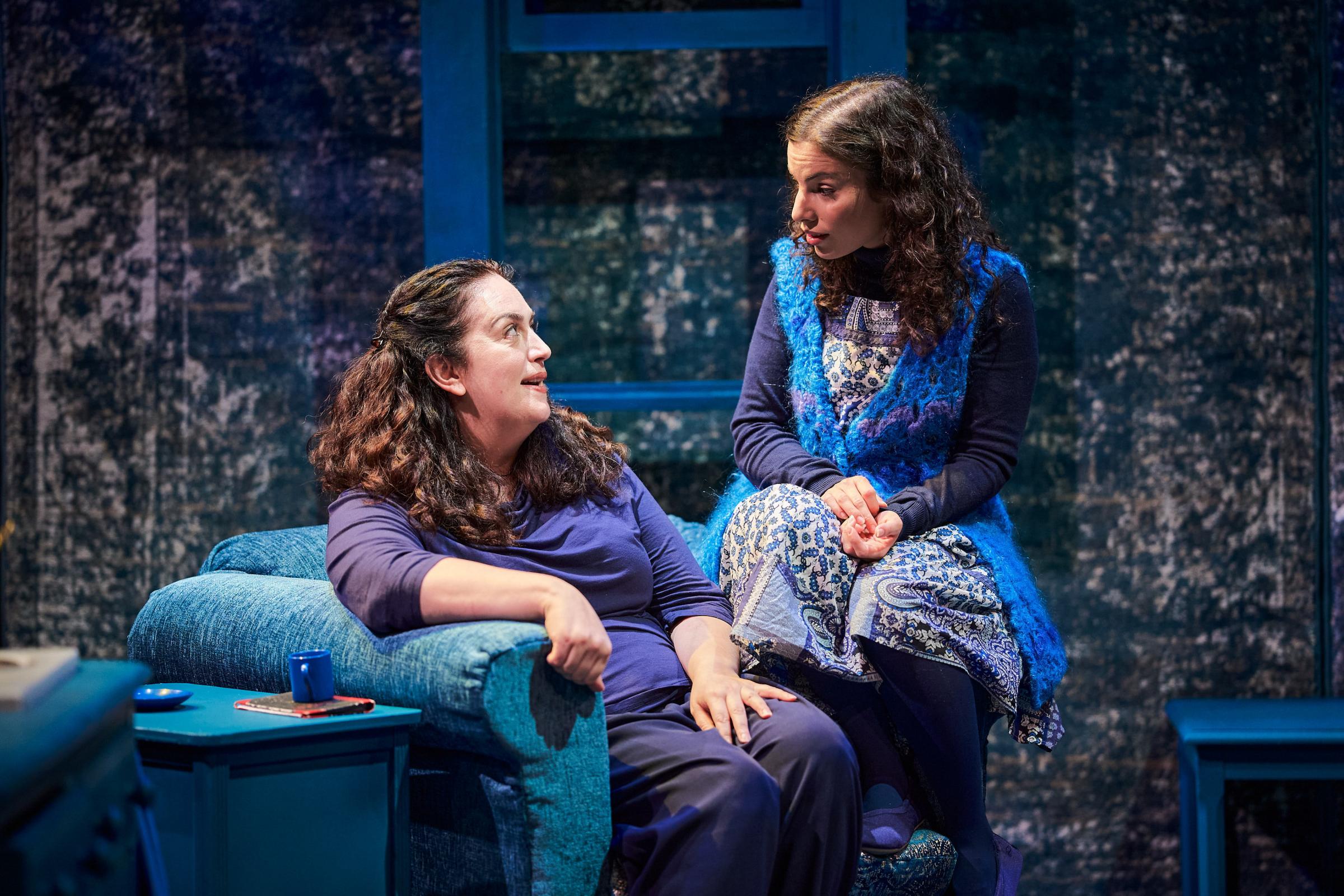
IT is a contrasting scene that confronts audiences for Sara Shaarawi’s new play Sister Radio, which is the inaugural production in Pitlochry Festival Theatre’s new 157-seater studio. The stage is set in a semi-naturalistic evocation of pleasant domesticity (representing the modest Edinburgh flat of Iranian émigré Fatemeh).
By contrast, the auditorium is the very picture of a well-appointed and modern public space. Audience members are seated comfortably on three sides, and on two levels, around the stage in what is a very welcome addition to Scotland’s theatre stock.
The play itself (which is co-produced by PFT and Scotland’s women’s theatre company Stellar Quines) traces the loving-yet-turbulent relationship between Fatemeh (Lanna Joffrey) and her younger sister Shirin (Nalân Burgess).
Fatemeh – an exile from the repressive, theocratic regime in her homeland – is an established member of the sizeable Iranian diaspora.
Shirin, for her part, arrives in Edinburgh fresh from an ever-changing Tehran which her father believes is becoming too dangerous for his younger daughter.
What follows is, in large part, a gentle, slow-burning portrait of both migrant experience and sisterhood.
As Shirin acclimatises (both literally and metaphorically) to life in Scotland, she and her sibling reacquaint themselves with each other. Personal habits are remembered, coffee rituals observed, and, always, the sights, sounds and tastes of Iran recalled.
The kitchen radio is ever-present in the play, bringing us the sisters’ eclectic musical tastes (ranging from Marc Bolan’s T Rex to Iranian folk songs) and global news headlines (which move around chronologically with Shaarawi’s narrative).
The machine is also a ghost radio which punctuates the women’s lives with memories of home and the childhood game in which Fatemeh and Shirin presented their own radio show.
There is in all of this a deceptive calmness, and one which the writer dispenses with in emotive terms that it would be criminal to disclose (if you are, as I am as a critic, averse to spoilers). Director Caitlin Skinner’s production handles the drama’s sudden volte-face nicely.
The tricky question of how to have relatively young actors play their characters in old age is resolved less satisfactorily (with hunched frailty). Likewise, the use of radio news headlines to illustrate the play’s movement back-and-forth in time confuses more than it illuminates.
Nevertheless, this modest two-hander is a nicely acted, touching reflection on exile and the complexities of sibling relations.
At Pitlochry Festival Theatre, various dates, until September 28, then touring until November 12.







